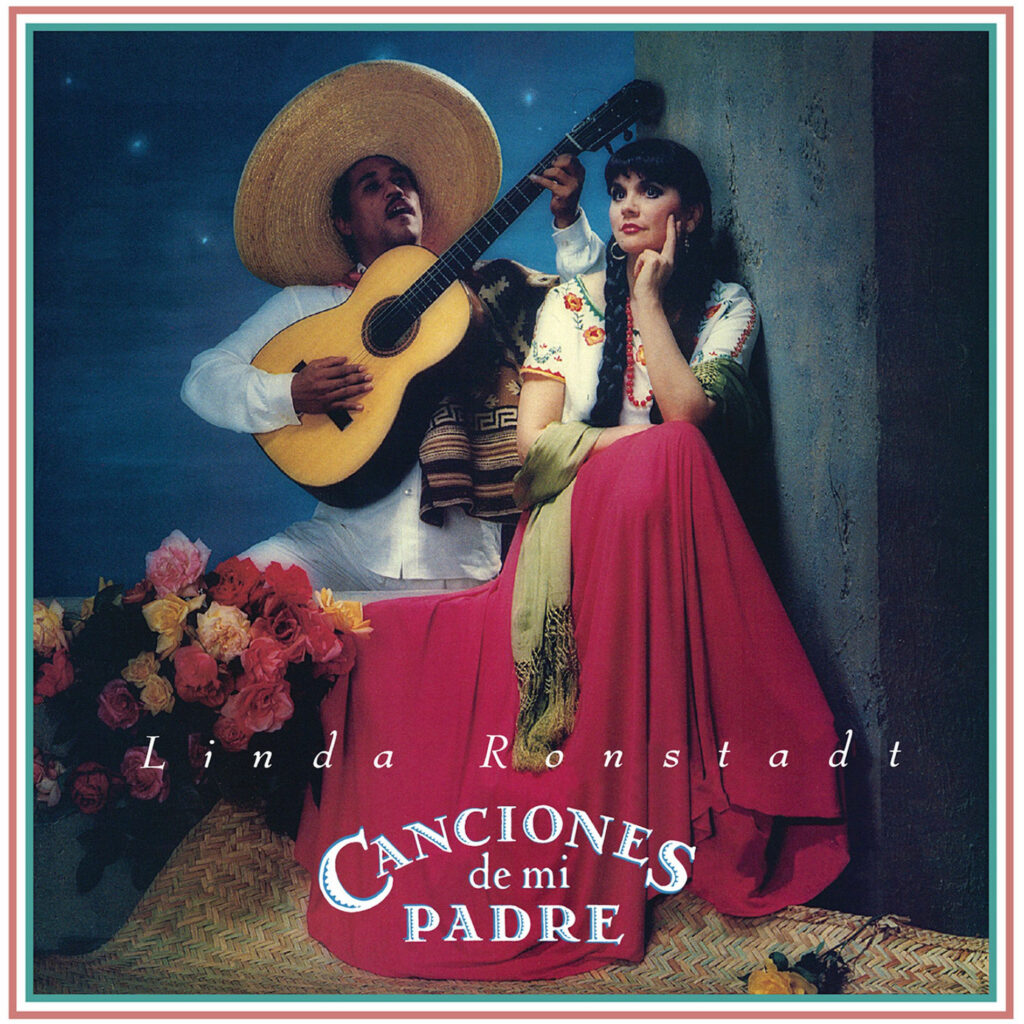
“Los Laureles”: A Vibrant Blossom of Enduring Love and Mexican Heritage
There are moments in music history that transcend genre, language, and expectation, carving out a space entirely their own. One such glorious moment arrived in 1987 with Linda Ronstadt’s release of Canciones de Mi Padre, an album that, to this day, stands as a vibrant testament to her unparalleled artistry and deep connection to her Mexican roots. Within this groundbreaking collection lies “Los Laureles (The Laurels),” a song that, while not a charting single on its own, became an integral part of an album that achieved monumental success. Canciones de Mi Padre reached No. 42 on the Billboard 200 album chart and, remarkably, became the biggest-selling non-English language album in American history, earning a double-platinum certification and a Grammy Award for Best Mexican/Mexican-American Album. The album, and “Los Laureles” within it, served as a profound bridge, introducing traditional mariachi music to a wider American audience, a cultural gift from a daughter to her father, and to the world.
For many of us who remember those times, Linda Ronstadt was already a household name, celebrated for her chameleon-like ability to master rock, pop, and country. But this album, this venture into the heart of Mexican ranchera music, felt different, personal, and utterly authentic. The story behind Canciones de Mi Padre and songs like “Los Laureles” is deeply rooted in Ronstadt’s family history. Her father, Gilbert Ronstadt, was of Mexican descent, and Linda grew up immersed in the sounds of traditional Mexican folk songs, often sung by her father and his family. These weren’t just melodies; they were the soundtrack of her childhood, echoes of family gatherings, and expressions of cultural pride. The album was a heartfelt homage to this heritage, a way for Ronstadt to honor her father and the music that shaped her. “Los Laureles,” an ancient folk song, was likely one of the many canciones she heard echoing through her family home in Tucson, Arizona.
The meaning of “Los Laureles” itself is a timeless exploration of love, longing, and the pain of potential separation. The lyrics, rich with poetic imagery of green laurel trees and flaming flowers, speak of a love so profound that the thought of parting is akin to losing one’s life. It captures the passionate declarations and subtle doubts that often accompany deep affection. There’s a beautiful vulnerability in the lines that question a lover’s commitment, asking them to look into their eyes if they aren’t promised to another. It’s a classic example of the ranchera style, brimming with raw emotion, romantic ideals, and a touch of melancholy. While the “laurels” in the title literally refer to the plant, the phrase “dormirse en los laureles” in Spanish idiomatically means “to rest on one’s laurels,” suggesting a complacency after achieving success. However, in the context of this song, the laurels symbolize the enduring beauty and steadfastness of love, even in the face of potential farewell. It’s a song that touches on universal feelings that anyone who has loved deeply can understand, regardless of their background.
When you hear Linda Ronstadt’s voice on “Los Laureles,” it’s not just a performance; it’s an inhabitation. She doesn’t merely sing the words; she feels them, channeling generations of emotion and storytelling into every note. Her pronunciation of the Spanish, while perhaps not that of a native speaker by birth, carries an undeniable reverence and passion, honed by years of listening and loving this music. The power and clarity of her voice, so renowned in her pop and rock endeavors, take on a new, earthy resonance here, perfectly suited to the heartfelt cries and tender whispers of mariachi. The accompanying mariachi ensemble, particularly the legendary Mariachi Vargas de Tecalitlán, provides a vibrant, authentic backdrop, their trumpets soaring, violins weaving intricate patterns, and the guitarrón and vihuela laying down a rhythmic heartbeat. It’s a sonic tapestry that envelops the listener, transporting them to sun-drenched plazas and moonlit serenades.
For many, Canciones de Mi Padre and tracks like “Los Laureles” were an awakening, a door opened to a rich musical tradition that had, for too long, remained on the periphery of mainstream American culture. It was more than just an album; it was a cultural event, a declaration of identity, and a celebration of heritage. It sparked a renewed interest in mariachi music, not just in the U.S. but also influencing perceptions in Mexico itself. Even today, listening to “Los Laureles” can evoke a strong sense of nostalgia, perhaps for a time when music felt more raw and honest, or for the simple beauty of a song sung from the heart. It’s a testament to Linda Ronstadt’s courage and conviction, and a beautiful reminder of the unifying power of music that transcends all boundaries, forever blossoming in our collective memory.